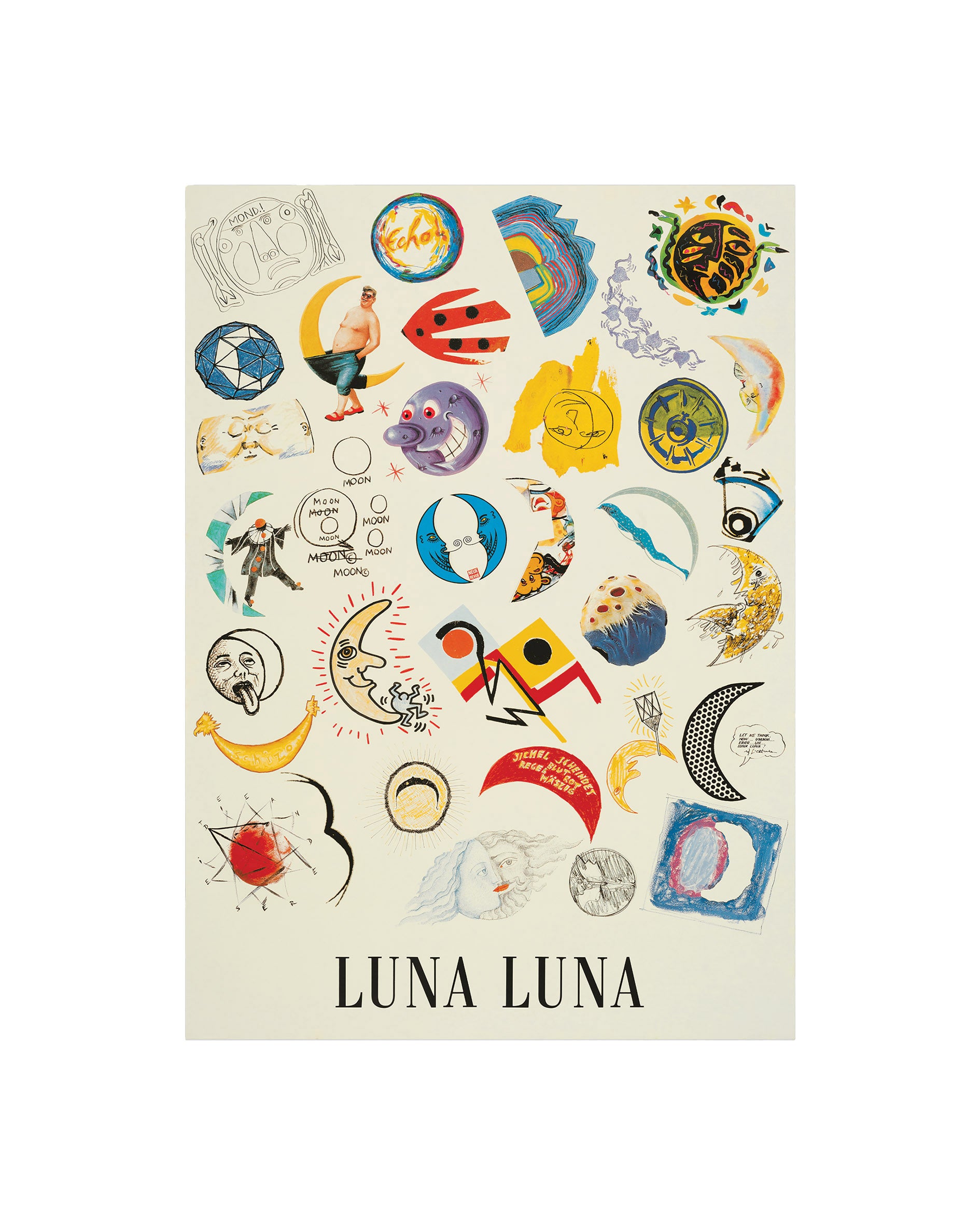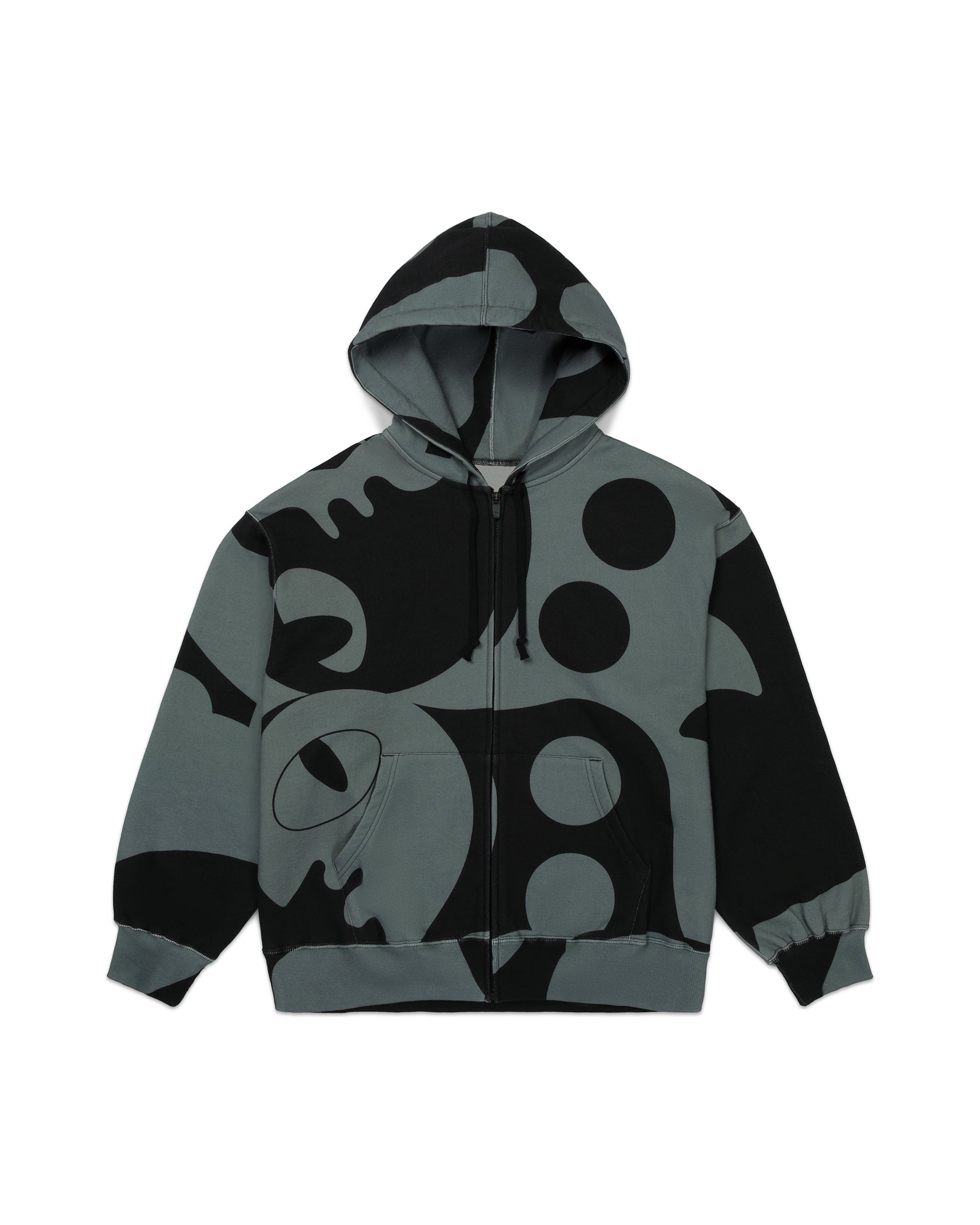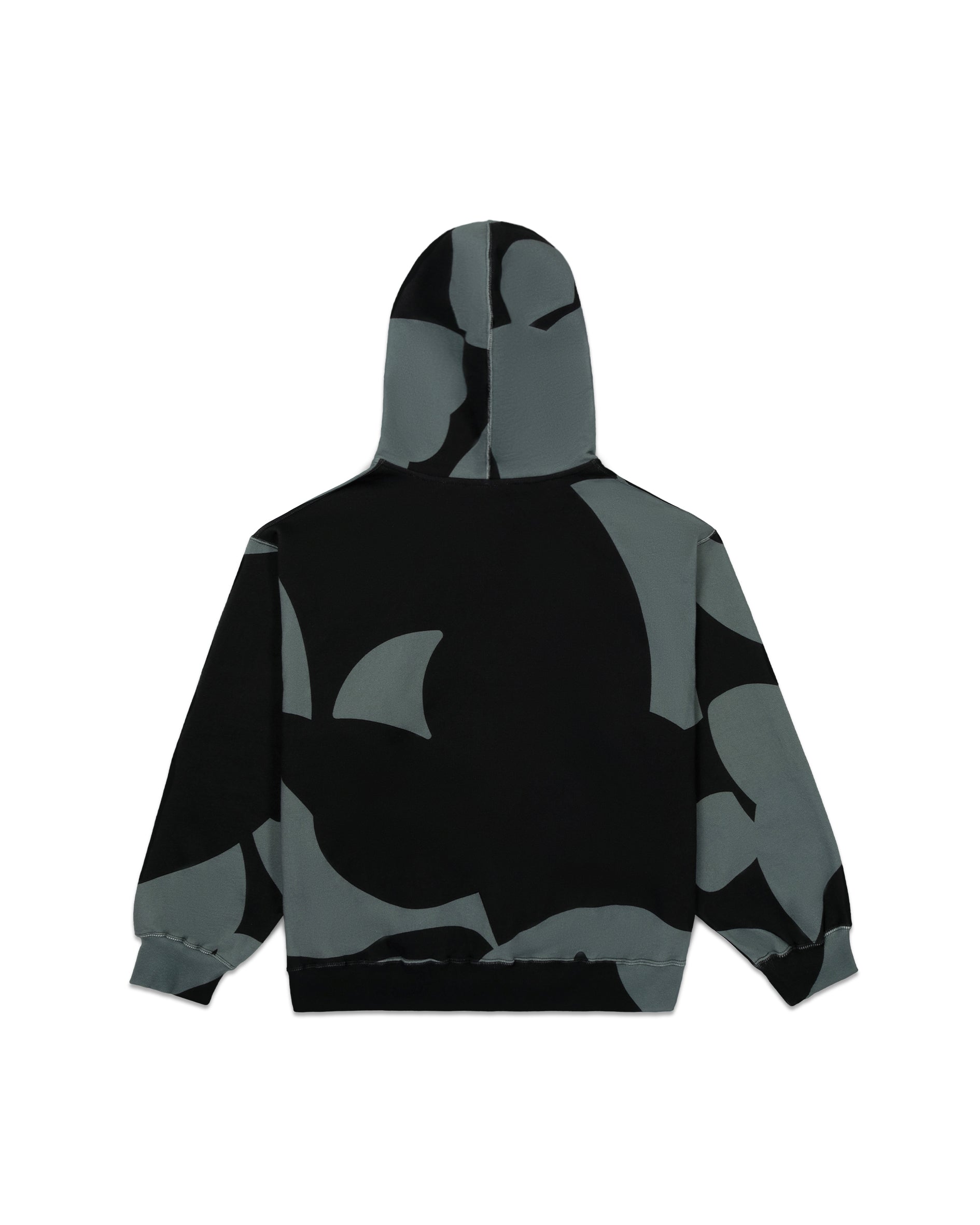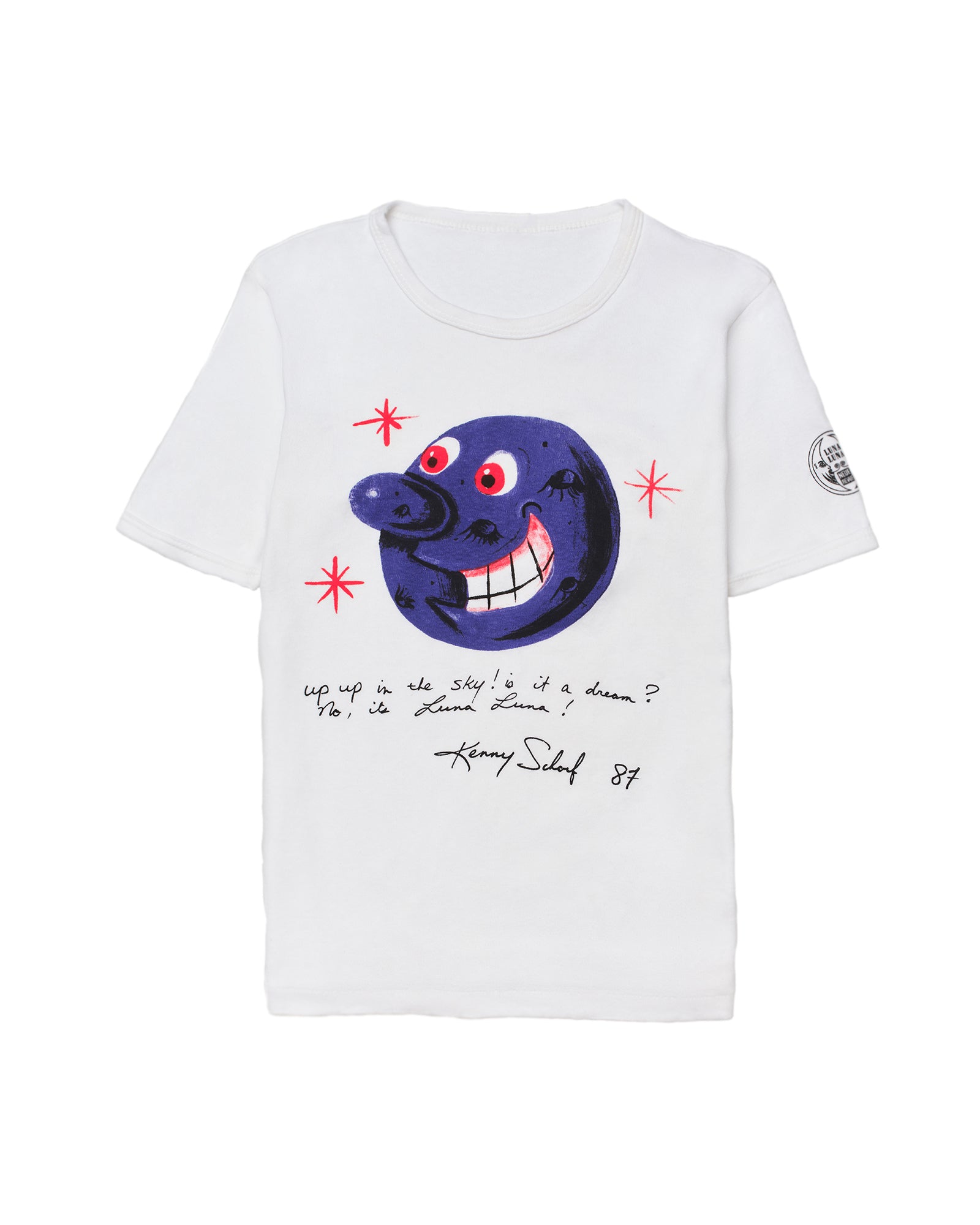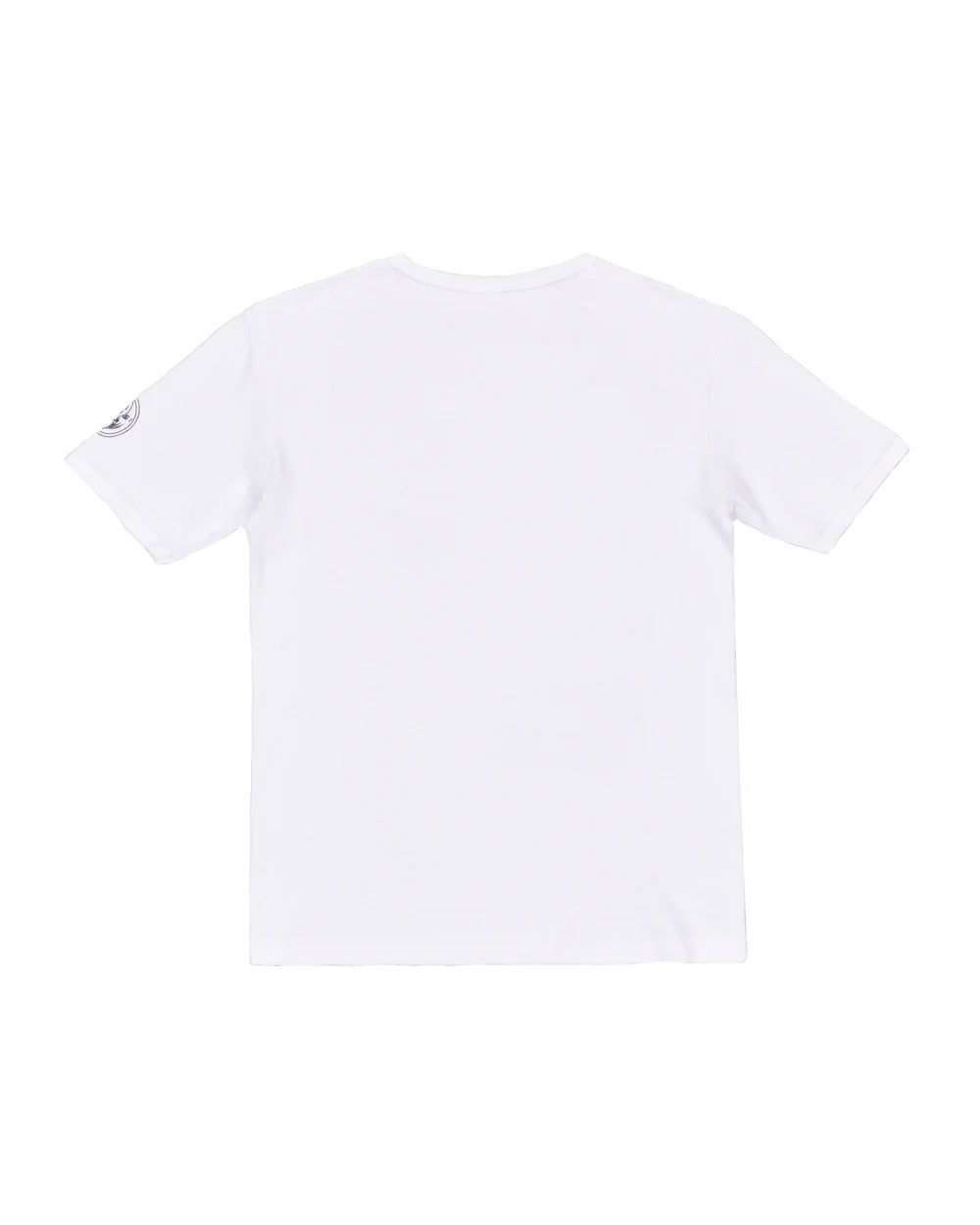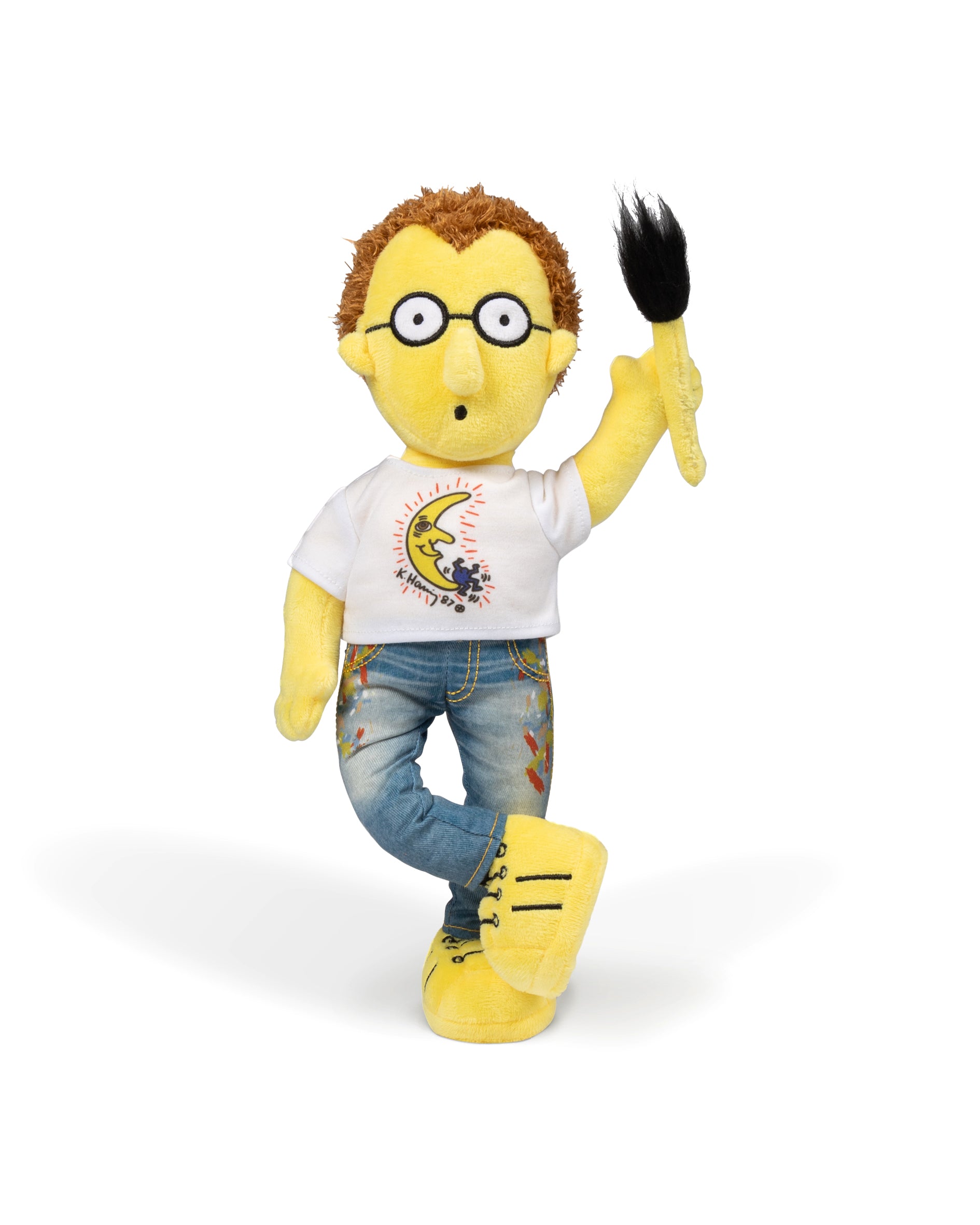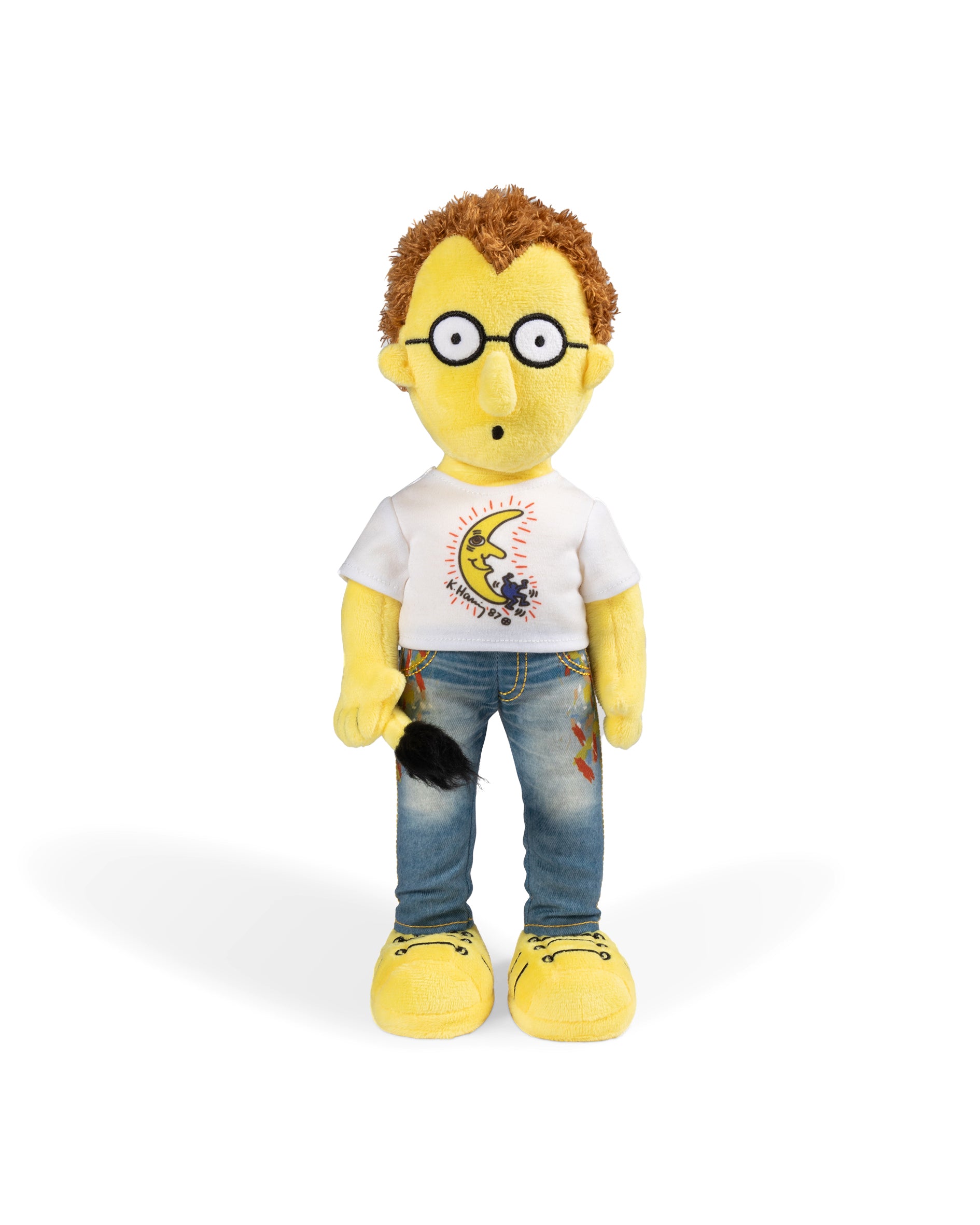
Patrick Raynaud.

Fairground view: Patrick Raynaud, Playground of geometric sculptures. Luna Luna, Hamburg, Germany, 1987.
Patrick Raynaud creates films and sculptures, taking seemingly mundane objects—from active machines such as wind turbines or roundabouts to static crates and mannequins, and transforming them into playfully provocative sculptures.

Patrick Raynaud, Preparatory sketches, exhibited 1987.

Fairground view: Patrick Raynaud, Playground of geometric sculptures. Luna Luna, Hamburg, Germany, 1987.
Since the 1980s, crates have been a central element of Raynaud’s work. Crates—both ubiquitous and overlooked objects within the contemporary art market—allow art to be shipped and moved at a global scale. Raynaud’s sculptures explore the conditions of the commercial art ecosystem by transforming these mobile units into art objects themselves. He frequently adorns crates and containers with photographic reproductions of art historical masterworks, investigating the circulation of high-value works such as Leonardo da Vinci’s Mona Lisa (1503). Other works by Raynaud reimagine institutionally and commercially sacred artworks, Claude Monet’s Water Lilies (1897-99) or Vincent van Gogh’s Sunflowers (1888-89), in the form of light boxes or postcards—a form of appropriation that questions the difference between original and copy and democratizes the consumption of these iconic images.
Raynaud makes these otherwise innocuous forms and architectures uncanny, crafting a whimsical dystopia with his gravity-defying installation.

Patrick Raynaud, Playground of geometric sculptures, exhibited 1987.

Patrick Raynaud, Playground of geometric sculptures, exhibited 1987.
For Luna Luna, Raynaud designed a demented cityscape comprising a series of contorted and precariously balanced architectural and geometric forms. Homes are stacked and flipped upside down, stairs lead to nowhere, and shapes are illuminated from within by ghostly interior lights. Raynaud makes these otherwise innocuous forms and architectures uncanny, crafting a whimsical dystopia with his gravity-defying installation.
Forgotten Fantasy
Now open at the shed, nyc
Thirty-seven years ago, Luna Luna landed in Hamburg, Germany: the world’s first art amusement park with rides, games, and attractions by visionaries like Basquiat, Haring, Lichtenstein and Hockney. By a twist of fate, the park’s treasures were soon sealed in 44 shipping containers and forgotten in Texas — until now.



